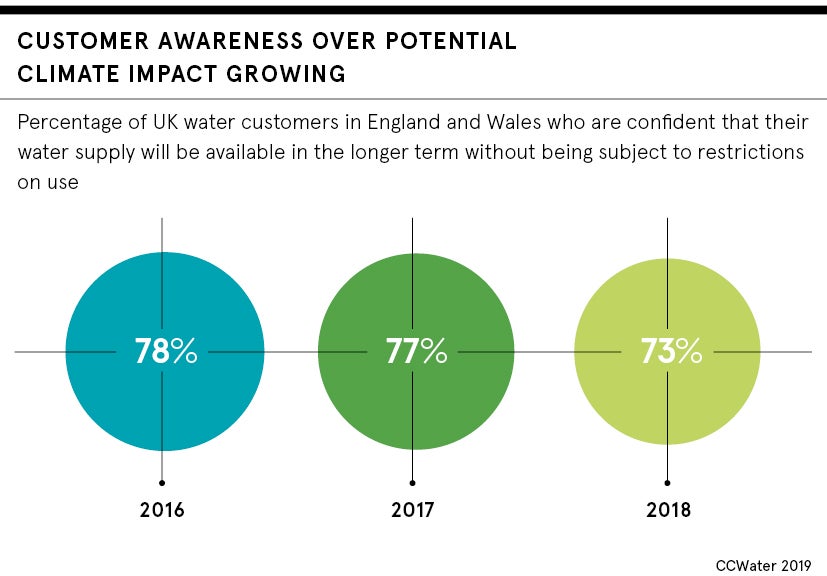If you had to put a real price on a jug of clean tap water, what would it be? Nothing or little, because access to it is a human right? But if the tap runs dry, then does it become a priceless commodity? There’s no doubt that if mankind was forced to put a true price on water – its real environmental, economic and societal value – we would respect this life-giving compound a great deal more.
Water is crying out for its own “ocean plastic moment”, when our water courses are too chocked full of rubbish, too parched to flow or deluged in the wake of climate crises. Only then will we sit up and think how vital water is on a global scale. It’s something most of us take for granted, because there’s a myth of abundance.
“We now live in a world of ‘peak water,’ where we over-tap, pollute and abuse our most precious resource. We need a fundamental change in the way we think about water,” says Peter Gleick, founder of the Pacific Institute.
The failures of water management
This comes at a time when mankind faces the perfect storm of issues from micro-beads in rivers, more pesticides and fertilisers from farm run-off, swelling human populations with a lack of safe sources and pathogen-filled water, not to mention more water “day zeros” from Chennai to Cape Town. Globally, the sector needs to convey a clear message about the challenges it faces.
“The public sector has few incentives to communicate that water is increasingly scarce due to increasing demand. What country, city or utility wants to announce that there isn’t enough water for economic or business development? What water utility wants to increase rates to promote conservation and reuse, unless regulated to do so?” says Will Sarni, chief executive of Water Foundry.
Access to clean water is enshrined in a United Nations resolution, yet at the same time this right is abused. To date there’s also chronic underinvestment in infrastructure, much of which is invisible and underappreciated. The Organisation for Economic Co-operation and Development estimates $1 trillion in annual investment is needed. At the same time, the sector isn’t attractive to private finance as returns are low.
“It’s water management, stupid,” exclaims Monika Weber-Fahr, executive secretary and chief executive of the Global Water Partnership. That’s because many of the water crises we now face are born out of poor management, exasperated by a lack of data, yet water governance and ownership are sensitive topics, all because it involves a multitude of players. Water is a real nexus issue.
“Water management fails because it’s done in isolation, not taking into account the linkages between land, fresh water, coasts and the oceans,” says Ruth Mathews, senior manager at the Stockholm International Water Institute. “We need governments, companies and individuals to account for the water they use and listen to the voices of those often ignored, the poor, the vulnerable, local people and the environment.”
Why there’s a lack of awareness
Innovation in public policy can go a long way to driving change. Just look at how Israel, Singapore and the Netherlands manage every drop. Water conservation and reuse is mandated and supported by pricing. The future of water is also digital. Water technologies are now transforming the industry just as they did the energy sector.
“So many of our problems don’t just require technical solutions, but improvements in real management, and even here, we’re seeing efforts to move away from old thinking and 20th-century institutions towards more effective and equitable water management,” says Dr Gleick.
And time is of the essence. According to the UN, there’s expected to be a 40 per cent shortfall in fresh-water resources by 2030; that’s a lot of water. By 2050, GDP growth rates could decline by 6 per cent due to water-related impacts on agriculture, health and incomes, with a loss of $4.5 trillion, according to the World Bank.
“If we understand the true scale of risk and the subsequent economic consequences when water impacts on human activity, we might value it more and make better-informed economic, development and business decisions about water,” says Tom Williams, director of water at the World Business Council for Sustainable Development.
“Investors now want more information about how companies are disclosing water-related risk to their business. One way to do this would be to highlight the proportion of revenues that are exposed to water-related risk. The impact of water risks are also showing up on company bottom lines.”
Water stewardship allows for more opportunities
We are certainly getting smarter at calculating the real price of water use in terms of extraction, treatment and transport, as well as energy use and associated carbon emissions. This paves the way for economies, global trade and businesses to attribute more value to this precious commodity.
In time this could help boost demand for finance in water projects, which is currently weak while the number of bankable projects is small.
“We need to evolve in how we fund water infrastructure and innovation. Traditional approaches by the public sector or venture capital are not adequate. We need blended finance – low and high-risk capital – and patient capital to support water entrepreneurs,” says Mr Sarni.
“Water stewardship in many cases is a corporate social responsibility function and not viewed as an enterprise risk and business opportunity. We need to frame water as an opportunity for the private sector.” That reframing can’t come soon enough.
The failures of water management
Why there's a lack of awareness

